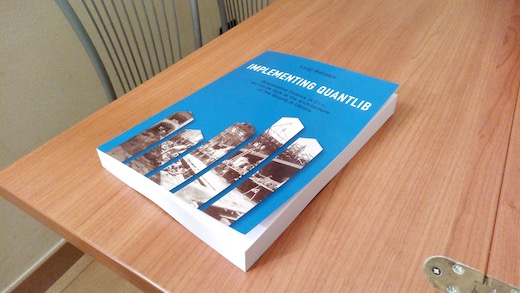A few news items
Hello everybody. Long time no see.
I’m back to the blog for a few quick news items about QuantLib, in case you’re not following me on Twitter (which is fine by me, it’s your feed after all—but in case you want to rectify that, I have a button for you to click at the bottom of this page).
Implementing QuantLib as a paperback
And with a spiffy new cover to boot (thanks, Claudio).

You can get it from your local Amazon store now, and possibly on other legitimate channels in a while. This doesn’t include the site I found trying to sell copies at twice the original price. I mean, what the heck?
New video of my Thalesian talk
Last month, I’ve been graciously invited to give a talk about QuantLib for the Thalesians (remotely, of course, 2020 being 2020—stay safe out there, you all). If you’re reading, Paul, thanks again; it was great. The recorded video of the talk and of the following Q&A session is now online; you’ll find it on their video page.
QuantLib 1.20 released
I published the latest QuantLib release this week; you can find the release notes, for instance, on its GitHub page. One thing I wanted to point out so you can possibly prepare for it: we’re sunsetting support for Visual C++ 2012 in the C++ library, and for Python 2.7 in the SWIG wrappers. They’ve both been out of support from their makers for a while now. They’ll be supported for another release, and then we’ll assume that you have more recent tools at your disposal; this will allow us, for instance, to finally move to C++11 after a decade from its introduction. It turns out it’s not a fad after all.
That’s all for now. Thanks for reading!
Subscribe to my Substack to receive my posts in your inbox, or follow me on Twitter or LinkedIn if you want to be notified of new posts, or subscribe via RSS if you’re the tech type: the buttons for all that are in the footer. Also, I’m available for training, both online and (when possible) on-site: visit my Training page for more information.